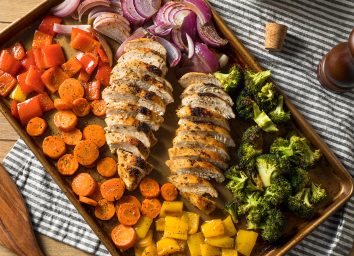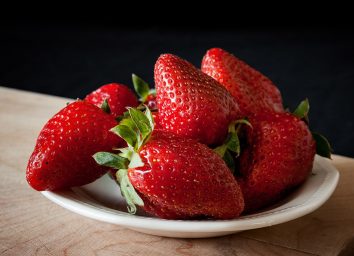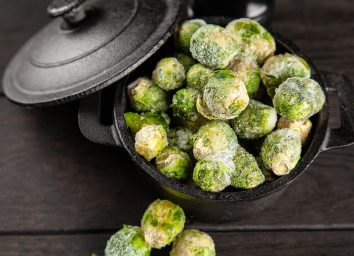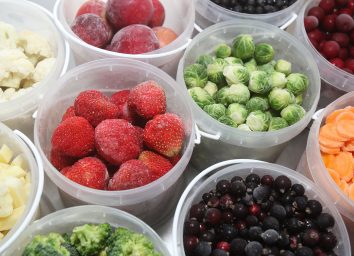What Happens to Your Body When You Don’t Eat Fruits & Veggies
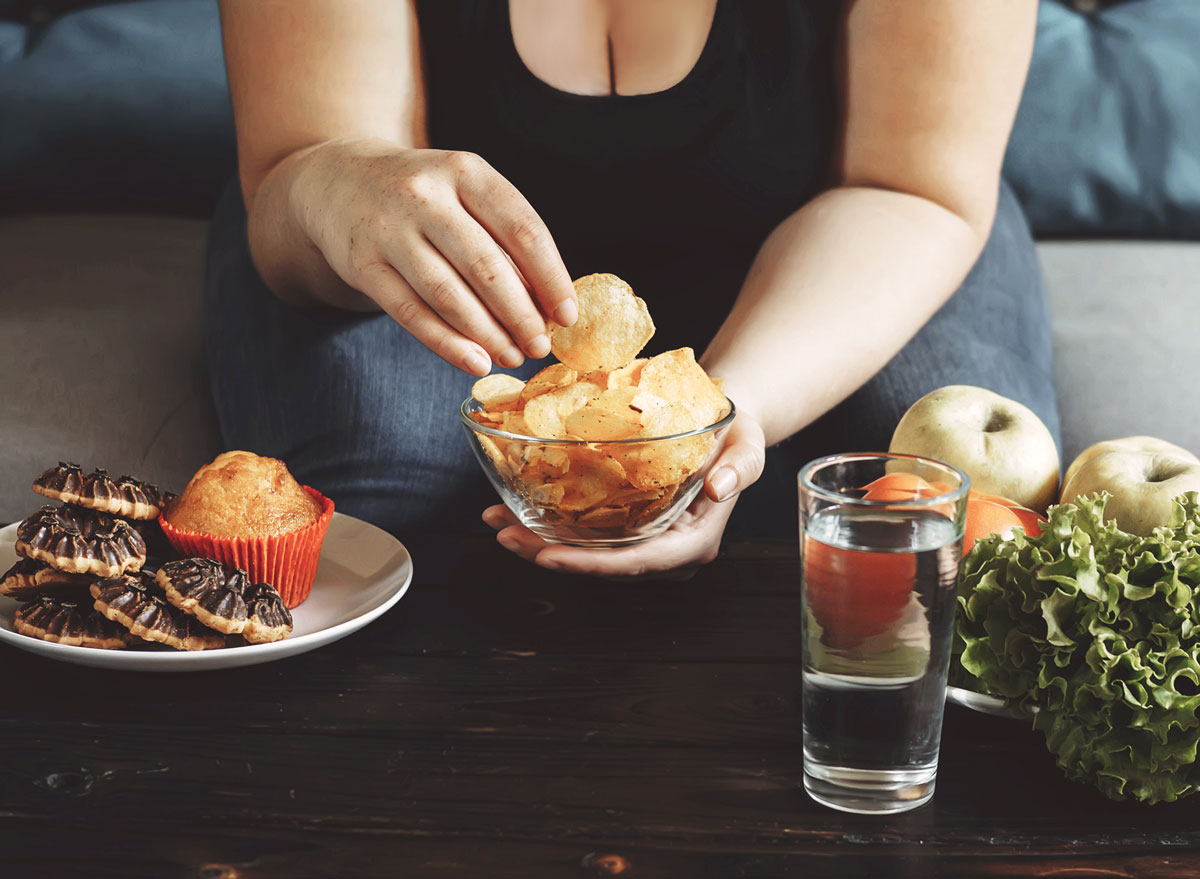
A bowl of cereal for breakfast, a turkey sandwich and chips for lunch, some pasta or chicken and rice for dinner… that’s the norm for many Americans. But when you rely mostly on proteins, packaged foods, and grains to fill your meals—and only view fruits and veggies as optional toppings or sides—you’re doing your body a scary disservice.
Despite the expert recommendation that half of your plate should have fruits and veggies, a lot of people not only fall short of the recommended amount. In fact, they aren’t remotely close to getting enough. That’s a big problem for your body.
Not only are fruits and vegetables delicious, but countless studies concur that eating the rainbow of veggies and fruits can help you lose weight, stay healthier, and fight off disease. Read on to find out what happens to your body when you’re not loading up on ROYGBIV-infused wholesome goodness. And once your motivation has kicked in to hit the produce aisle, consider reaching for these 20 Fruits and Veggies That Fill You Up!
You’ll be cranky

“If you are skipping fruits, reducing carbs, and focusing mostly on eating protein, there is a good chance that you will become irritable and it will become harder to focus,” says shares registered dietitian Mitzi Dulan, RD, author of The Pinterest Diet: How to Pin Your Way Thin and team nutritionist for the Kansas City Royals. “Our brains are glucose-dependent and need carbs to function optimally.” Not keen on carbs? We put together a list of 25 Vegetables For When You’re Eating Low-Carb.
You won’t get enough fiber
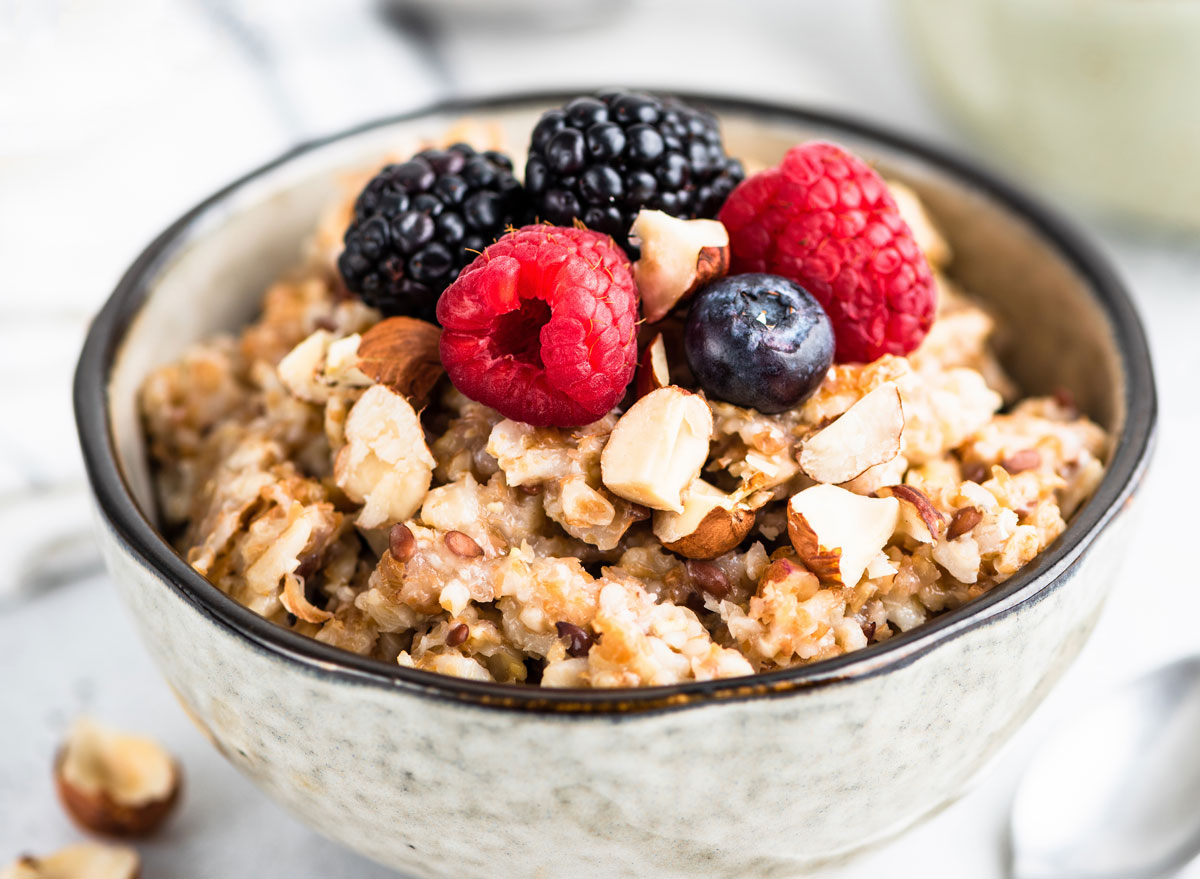
“Without any fruits or vegetables in your diet, you are likely to fall short of your daily fiber needs,” says registered dietitian Erin Palinski-Wade, RD, CDE author of Belly Fat Diet For Dummies. Fiber helps to regulate appetite and blood sugar levels, reduces cholesterol, and promotes a healthy digestive system. “When you lack dietary fiber, you are more at risk of obesity, heart disease, and even certain cancers,” she says.
STAY INFORMED: Sign up for our newsletter to get the latest food news delivered straight to your inbox.
Your digestive system will not run smoothly

“Your digestive system will have a difficult time functioning without adequate fiber,” says registered dietitian Julieanna Hever, MS, RD, CPT, a plant-based dietitian and author of The Vegiterranean Diet and The Complete Idiot’s Guide to Plant-Based Nutrition. “Fruits and vegetables contain a variety of different fibers that increase transit time, promote the elimination of toxins, and improve immune function.” Note: fruit and veggie juices, as well as bottled smoothies, can be great for you, but remember that fiber is lost through the juicing process, so don’t rely on only bottles for your fiber fix.
You may suffer from constipation

“Without the fiber from fruits and veggies to help push food through, waste is much more likely sit in the colon, causing discomfort,” say Lyssie Lakatos, RD, CDN, CFT and Tammy Lakatos Shames, RD, CDN, CFT, The Nutrition Twins, authors of The Nutrition Twins’ Veggie Cure. “Also, produce is rich in water, which is necessary to push the waste out of the system. Fruits and veggies become especially important because many people are dehydrated and eating these water-rich foods helps to prevent constipation.” Eating your fruits and veggies and still frustrated in the bathroom? Then cross-check your diet with these 15 Foods That Make You Constipated!
Your skin may get dry and dull

Fruits and vegetables are a primary food source of vitamin A (found in sweet potatoes, carrots, pumpkin) and vitamin C (found in papayas, bell peppers, strawberries, oranges). “Both nutrients are considered antioxidants,” advises registered dietitian nutritionist Rebecca Lewis, MS, RD, the in-house nutritionist for Hello Fresh. “These antioxidants are what repair the damage we do to our bodies on a daily basis. For example, vitamin A deficiency will eventually lead to night blindness and/or dry skin.”
Your body will crave vitamin K
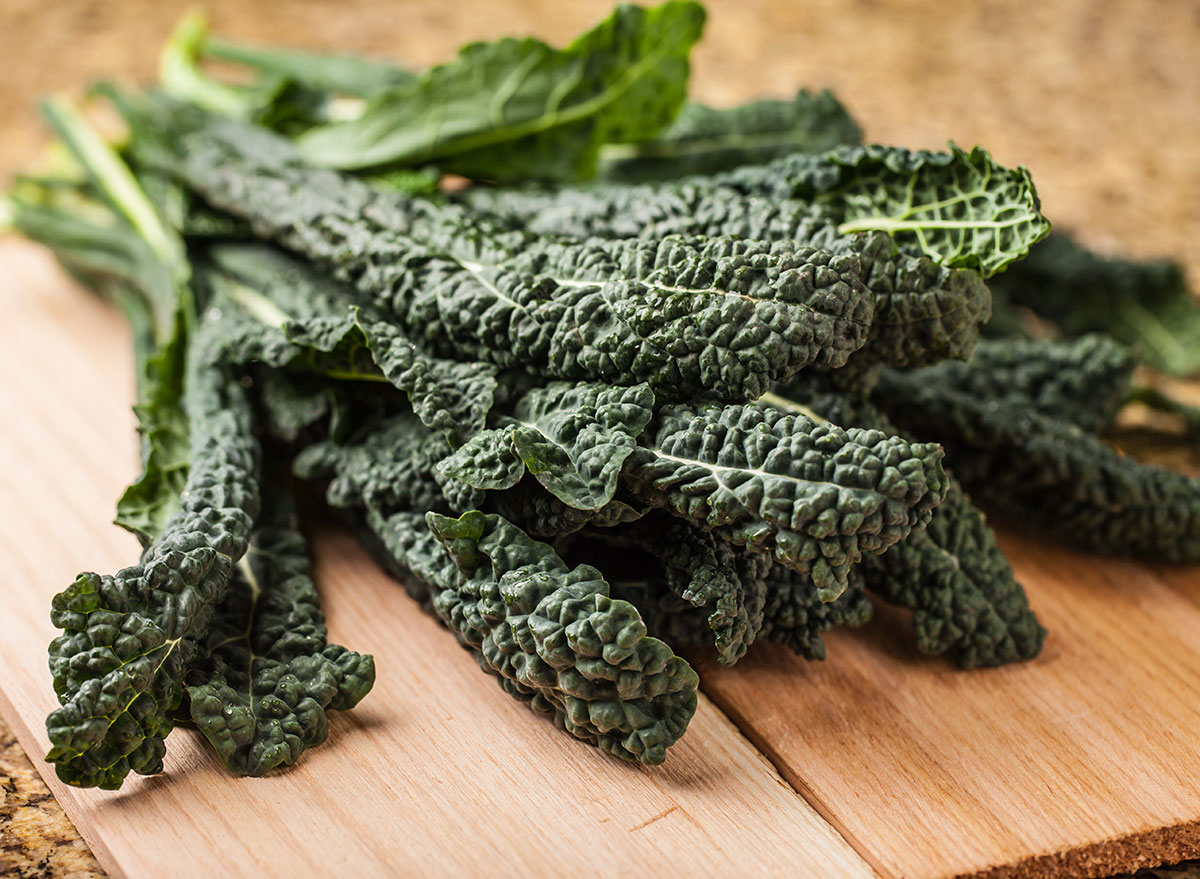
You may not read much about it, but vitamin K is key for keeping you healthy. “Vitamin K is critical for blood clotting and bone metabolism,” says Hever. “The ideal sources of vitamin K are dark green vegetables. Not only do dark green veggies provide this key nutrient, but they are also overflowing with thousands of protective compounds that support optimal health.”
You’ll consume more calories
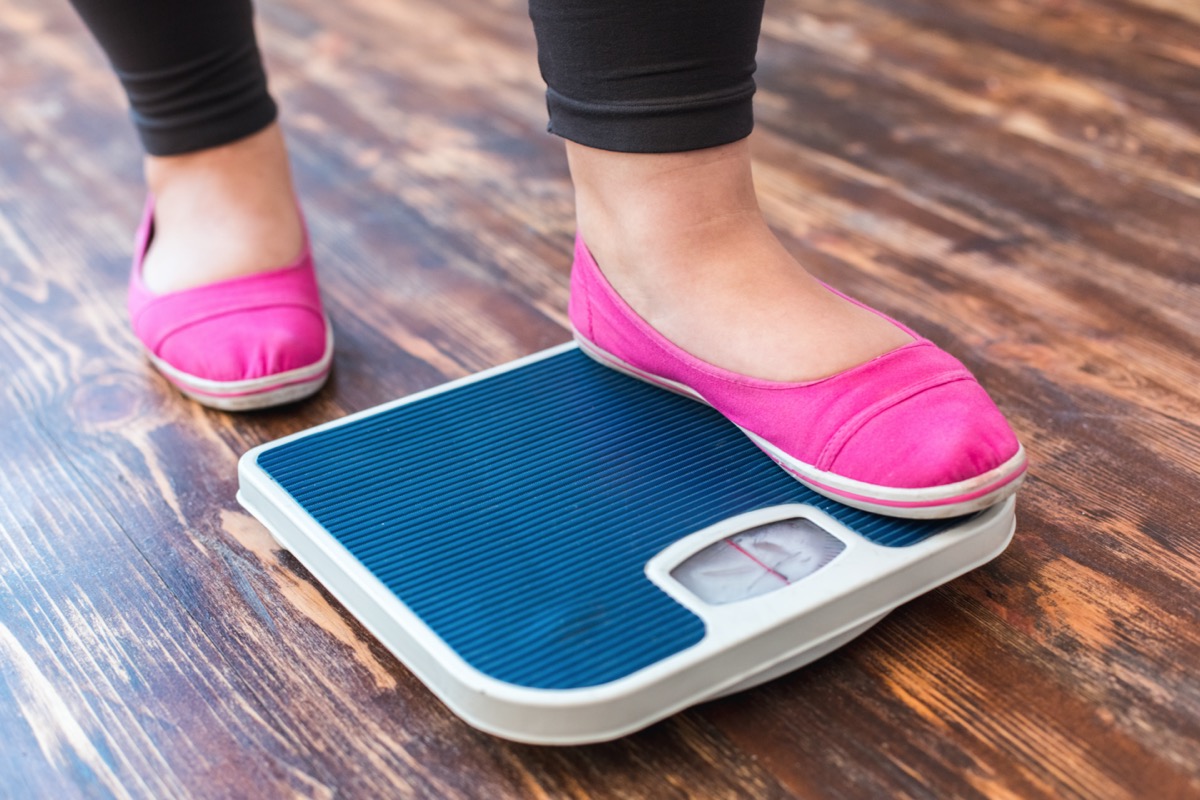
Eating fruits and vegetables is key to reducing calorie consumption. “[Eating fruits and vegetables] offset your calorie intake,” says Palinski-Wade. “Vegetables and fruits are rich in fiber and high in volume with few calories. Without fruits and vegetables in your diet, you will most likely be consuming foods smaller in volume and higher in calories, leading to a lack of satiety or an excessive intake of overall calories. The more fruits and vegetables you eat, the more likely you are to have a healthier body weight and a smaller waist circumference.” If you’re looking to consume less calories, then try out these 36 Ways to Cut 50 Calories or More!
You’ll start to feel fatigued

“A vitamin C deficiency will eventually lead to weakness, irritability, and fatigue,” advises Lewis. ” In the worst-case scenario, Vitamin C deficiency can cause scurvy, which leads to swollen and bleeding gums, swelling in the body, and inability to heal wounds!”
Your body will be more inflammed

“If you are skipping fruits and vegetables you are also missing out on all the important phytonutrients [beneficial substances found in plant foods] to keep your immune system strong,” says Dulan. “Fruits and vegetables also provide the antioxidants that help keep your skin healthy and overall help fight inflammation.” These are the 30 Best Anti-Inflammatory Foods to start gobbling up!
You’re more likely to get sick

“Fruits and vegetables have compounds that repair the damage in our bodies,” says Lewis. “These phytochemicals are extra potent, with some being 50-100 times more powerful than vitamin C! So, when we don’t consume enough fruits and veggies, we put a larger strain on our immune system, making us more prone to getting sick.”
You’ll feel bloated
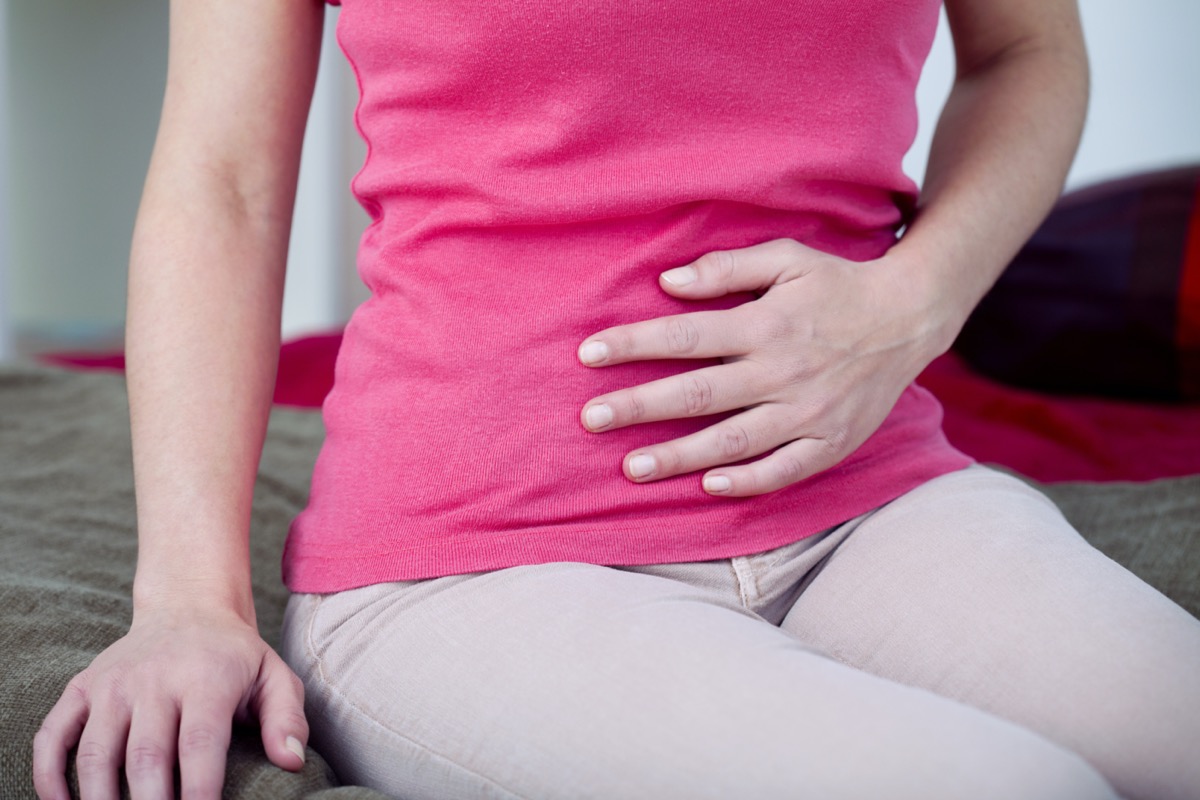
For real, guys and gals. “Thanks to the lack of fiber, waste is likely to sit in your belly for extended periods of time, causing unsightly bulges and creating discomfort,” say The Nutrition Twins. “When wastes aren’t pushed efficiently out of the colon you may also experience excess gas. Plus, veggies and fruits are packed with potassium and water which typically would counteract the bloat most people experience from getting too much salt.” Need some meal planning inspiration? Behold: 25 Foods That Beat Bloating!
You won’t be in a good mood

“New research suggests that people who eat fruits and vegetables are actually happier,” shares Dulan. “In the study, the more fruits and vegetables that were eaten, the bigger the increase in happiness. They aren’t exactly sure why, but suspect the antioxidants can play a role in optimism. Eating fresh watermelon or a juicy peach does put a smile on my face!” As do these 30 swoon-worthy avocado recipes for the Eat This, Not That! team…
Your body might start to feel sore and achey

Your body does so much for you—why not return the favor? “Fruits and veggies are also a rich source of potassium (think: spinach, bananas, avocados), which is an essential nutrient for proper muscle and nerve functioning, not to mention our fluid balance,” says Lewis. “Deficiency in this can lead to muscle weakness, numbness, bloating, and constipation.” Need some suggestions? Check out these high-potassium foods to keep your muscles healthy and strong.
You’ll miss vital nutrients you can’t get elsewhere

Sorry, but supplements don’t have all the answers. “Veggies and fruits are packed with immune-boosting vitamins, anti-inflammatories, and phytonutrients. While some of these protectors may be found in some other plant foods, the naturally-occurring, health-boosting combinations of phytonutrients in each fruit and veggie can’t be replicated,” say The Nutrition Twins. “This means it can’t be found in other foods nor isolated and stuffed in a man-made vitamin supplement. If you want to stay healthy, you need your fruits and veggies!”
You’ll feel gross

That run-down, low-energy, blah-times-twelve feeling shouldn’t be your norm! “The easiest way to feel light is to eat energy-boosting, light, immune-strengthening, disease-preventing foods,” advise The Nutrition Twins. “Without fruits and veggies, you tend to eat heavier foods. Many of these foods are higher in fat and can make you feel sluggish because your body digests fat slowly. The fatty foods feel heavier in your stomach and weigh you down.” Now that you know what happens to your body, keep the health and wellness improvement going with these 30 Nutrition Myths—Busted!
